From Alcoholic at 18 to Lawnie to Professor: A Recovery Journey
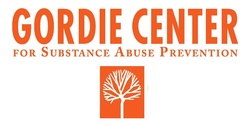
The Maxine Lynn Platzer Women’s Center and the Gordie Center for Substance Abuse Prevention welcomed back one alumnus on Wednesday to tell her story of alcoholism and recovery. The event was part of an effort to draw awareness to Substance Abuse Prevention Week.
At UVa – a college that is no stranger to national headlines over its culture of partying and drinking – Corbin C.’s* story was particularly relevant. The 2003 graduate of UVa – who wishes for us to only use her first name to protect her anonymity – came back to discuss her journey from becoming an alcoholic at the age of eighteen to ultimately recovering at the University.
Alcohol, Corbin explained, is a disease and should be treated as such; it overtakes people’s minds, ruins lives, and runs in families. This last note was particularly true in Corbin’s family, with her own father and three out of four grandparents facing alcoholism on a consistent basis.
Corbin said that her father told her as a child, “when our family drinks bad things happen.” She initially stayed weary of the activity but ultimately changed her mind when she had her first drink at the age of sixteen on a school trip in Spain.
Knowing that alcoholism ran in her family, she did some research. After failing to find anything that said she would become an alcoholic after just one drink, she decided Spain would be the perfect place to “try this out.” In retrospect, she says this is where her problem began.
“The instant the alcohol hit my blood… it just felt so good, I enjoyed it right away,” she explained.
By the end of her six week trip in Spain, Corbin had gained a considerable tolerance to alcohol and was already planning on how she could smuggle a bottle of vodka into the United States.
In order to avoid classifying herself as an alcoholic, she made some rules that she had to follow to contain her drinking.
“I couldn’t drink everyday, couldn’t drink and drive… as long as I could walk this line of being a good friend and student, then I could drink how I wanted,” she said.
But as time progressed, alcohol became the center of Corbin’s life, and consequences followed. During her fall break trip to DC in her first semester at UVa, Corbin saw that she was powerless whenever alcohol was involved. After being admitted into a bar with a fake ID one night, the bouncer warned her group of friends of undercover cops in the building. But rather than ending her escapade of underage drinking, she went back to the bar, leading ultimately to her arrest and a night spent in a southeast D.C. jail. At this point, instead of admitting that she had a problem, Corbin convinced her parents that she was mistreated by the police.
“When it came to alcohol, once I had the first drink in my system it was nearly impossible for me to stop. I couldn’t see that I actually had a problem,” she admitted at the event. Even after her night in jail, Corbin says she had been convinced that alcohol was improving her life, not damaging it.
It wasn’t until her education was at risk that Corbin realized she needed to evaluate her drinking habits. In November of her first year at UVa, Corbin says a visit from a resident advisor to her [alcohol-containing] dorm room resulted in Corbin’s threat of suicide and consequent admission to a mental institution. Yet even her time in the mental hospital still failed to convince her that alcohol was taking over her life. It wasn’t until her parents forced her to take a medical withdrawal at the advice of Dean Fobert, the Dean of Residence Life at the time, that she finally accepted her condition.
At this point, she began the road to recovery. In returning to UVa, Corbin became heavily involved in the Alcohol and Drug Abuse Prevention Team, also known as ADAPT, as well as her local chapter of Alcoholics Anonymous.
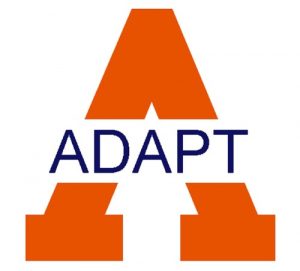
“It wasn’t easy early on,” she said. “There’s a lot of really hard work that goes into staying sober.” For one, she had to change her crowd of friends, individuals that she now recognizes as “high risk drinkers” even though they did not face the exact same problems as she did.
Her second year, she used her experience as a way to help others who were struggling with substance abuse. She became a Resident Advisor in the same hall from which she had once been carried away by police after threatening to commit suicide. After her long journey of recovery, Corbin had the opportunity to live on The Lawn, a prestigious distinction offered to some of UVa’s most influential, impactful, and intelligent students. Today, she is a professor at an Ivy League institution.
At the end of the day, Corbin said she wants recovering substance abusers to know that they can attain a successful life after recovery, despite the societal doubts imposed on them.
“They say that for true alcoholics like myself, the places we end up are jail, institutions, and death and I was heading to one of those places for sure. Instead I get to live an incredibly full vibrant life and that is all due to my sobriety,” she told the crowd.
—————–
For more information on substance abuse and recovery solutions visit: https://gordiecenter.studenthealth.virginia.edu
*Due to the nature of Alcoholics Anonymous, Corbin asked that her last name and photo be excluded from this publication.









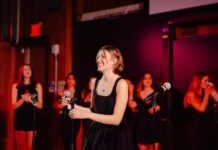
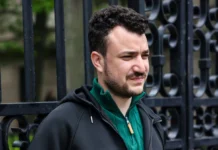
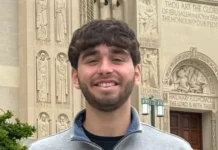





This web page is known as a stroll-by means of for all of the information you wanted about this and didn抰 know who to ask. Glimpse here, and also you抣l definitely discover it.